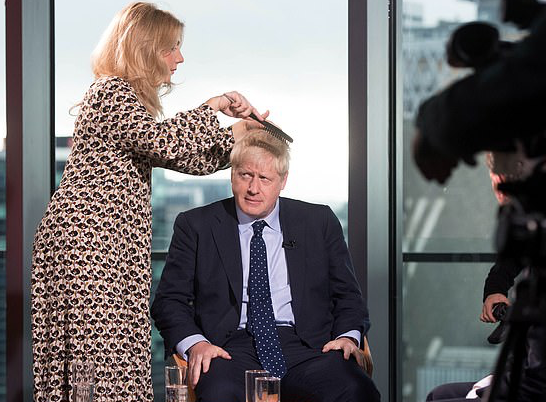Seasons’ greetings from the Justice Gap. Thanks to everyone who has contributed to or otherwise supported the site over the last 12 months.
The Justice Gap is a team effort. It is an ever-changing cast of volunteers including commissioning editor Will Bordell, Nicholas Reed Langen, Calum McCrae, Aqsa Hussain, Klara Slater, Helena Spector, Natalie Brownlie, Luis Lago, Holly Newing, Ayesha Ahmad and Sapan Maini-Thompson, Julia Wynn and Alicia Love.
In July we published issue 4 of PROOF magazine – the crime and punishment issue. It was sponsored by Manchester University’s School of Law. We also had help from Winchester University’s crime and justice research centre again and Sussex University’s crime research centre for their support.
I am also grateful to the Proof team: Will Bordell and designer Andrew Stocks – as well as Andy Aitchison and Isobel Williams who have helped from the start.
Proof is 100 pages and this issue had as twin themes, the prisons crisis and the legacy of miscarriages of justice such as the Birmingham Six and Guildford Four.
Contributors includes former inspector of prisons Professor Nick Hopkins, ex prison governor John Podmore and the journalists Duncan Campbell and Hardeep Matharu.
The issue also featured a prison art special featuring Koestler Award prize winners as well as an interview with the artist Patrick Maguire who at the age of just 14 year was wrongly imprisoned as the youngest member of the Maguire Seven.
We had a launch at the National Union of Journalists in July – see below. Speakers included ex prison governor John Podmore, Frances Crook of the Howard League, former prisons inspector Nick Hardwick as well as the artist Patrick Maguire and veteran crime correspondent Duncan Campbell.
Speaking at the launch, Prof Hardwick forecast ‘a lurch to penal populism’. ‘I think the window of opportunity for criminal justice reform has closed. It’s too late. We should be very worried about the future and the policies that Boris Johnson is likely to introduce when he becomes Prime Minister.’
A gloomy but fair prediction.
Boris Johnson’s government has promised a Royal Commission on Criminal Justice. The last such commission was in 1993 and was driven by public outrage at a series of miscarriages of justice that we ar still coming to terms with the legacy (i.e., Birmingham Six, Guildford Four, Maguire Seven etc). The most significant of its 200 plus recommendations was the creation of the first ever state-funded miscarriage of justice watchdog, the Criminal Cases Review Commission.
The 1993 Runciman commission failed to fix a broken system – the CCRC has been underfunded for more than 10 years now, and undermined by both the Ministry of Justice and the courts – see below.
The new royal commission seems driven by a conviction on the part of our new prime minister that what the public wants is harsher sentences and even more people in our violent and drug-ridden prisons.
It’s going to be a challenging year. Below are some of the stories and images from the Justice Gap from the last 12 months.
Very best wishes,
Jon
Buy Proof, support the Justice Gap
JANUARY
‘We are not terrorists’: Stansted 15 to appeal
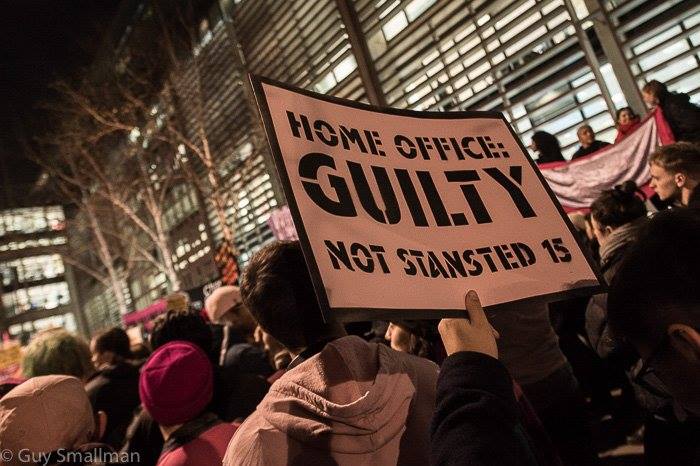 The nine women and six men charged under counter-terrorism legislation after having stopped a deportation flight from taking off announced that they were set to appeal their conviction, reported AQSA HUSSAIN.
The nine women and six men charged under counter-terrorism legislation after having stopped a deportation flight from taking off announced that they were set to appeal their conviction, reported AQSA HUSSAIN.
The so called Stansted 15 were convicted of endangering the safety of an aerodrome when they cut through the perimeter fence and locked themselves together around the plane.
The guilty verdict was condemned by the likes of Amnesty International who described it as a ‘crushing blow to justice’.
FEBRUARY
Sally Challen appeal: a ‘watershed moment’
 Why did Sally Challen take a hammer and murder the man she loved, and why should the criminal law intervene to protect such women? wrote HELENA SPECTOR. They were questions raised at a talk hosted by a new legal charity Centre for Women’s Justice.
Why did Sally Challen take a hammer and murder the man she loved, and why should the criminal law intervene to protect such women? wrote HELENA SPECTOR. They were questions raised at a talk hosted by a new legal charity Centre for Women’s Justice.
Conviction quashed, so all is well – or is it?
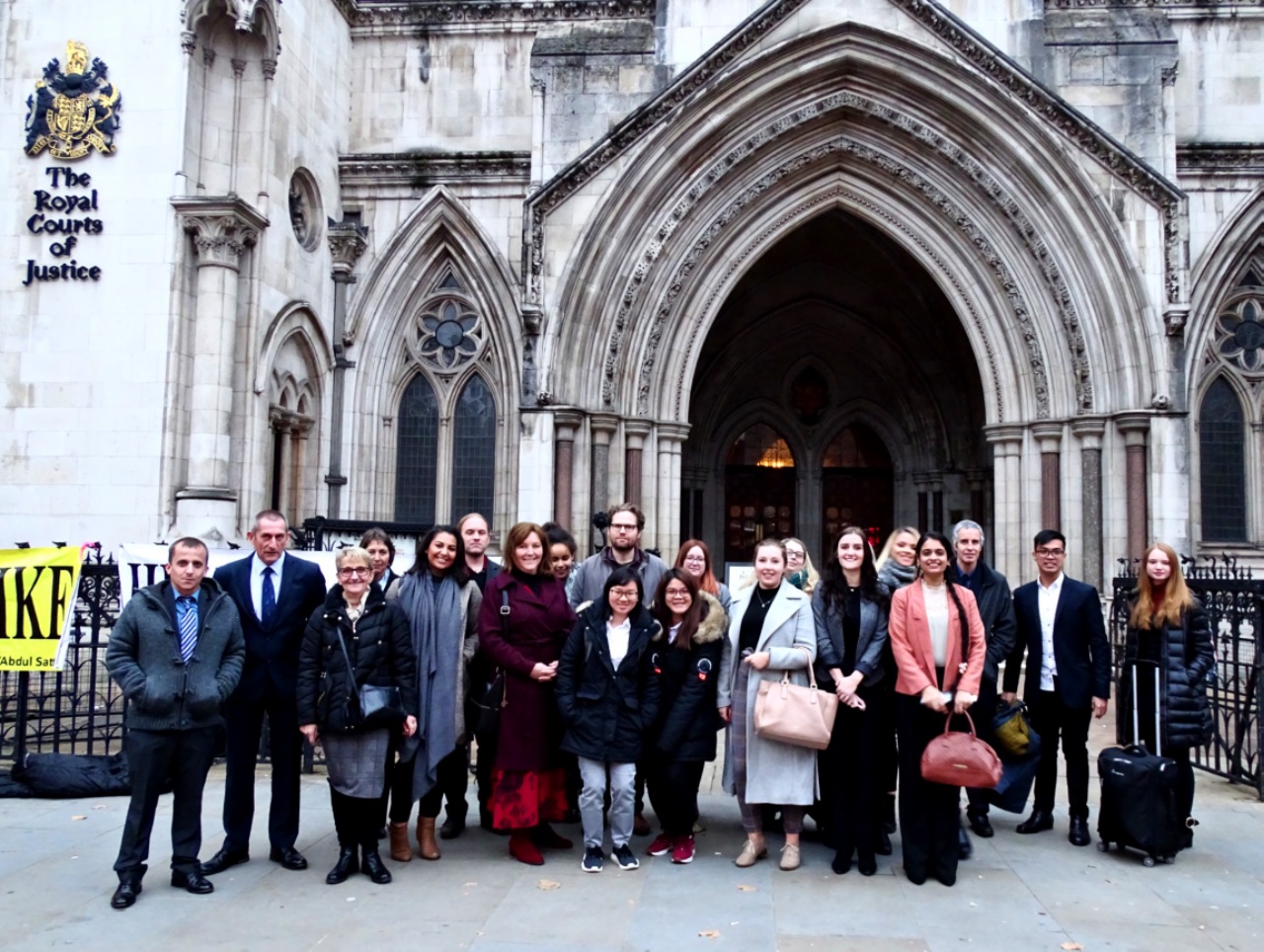
Cardiff University Innocence Project plus Gareth Jones and family – Gareth is on the far left
Cardiff University law students and academics helped to quash the wrongful conviction of a man who served three-and-a-half years of a seven-year prison sentence.
DENNIS EADY reflected on the case of Gareth Jones.
‘Is it right however that innocence people should have to rely on student volunteers and the good will of unpaid professionals? Is this not lottery justice?’
Dennis Eady
MARCH
Doreen Lawrence: the mother who changed the justice system

On Mother’s Day. NATALIE SMITH wrote about a mother whose grief and anger fuelled her fight for justice which has not stopped. ‘Doreen Lawrence took on the criminal justice system and changed it,’ she wrote.
APRIL
What’s the point of the miscarriage of justice watchdog?
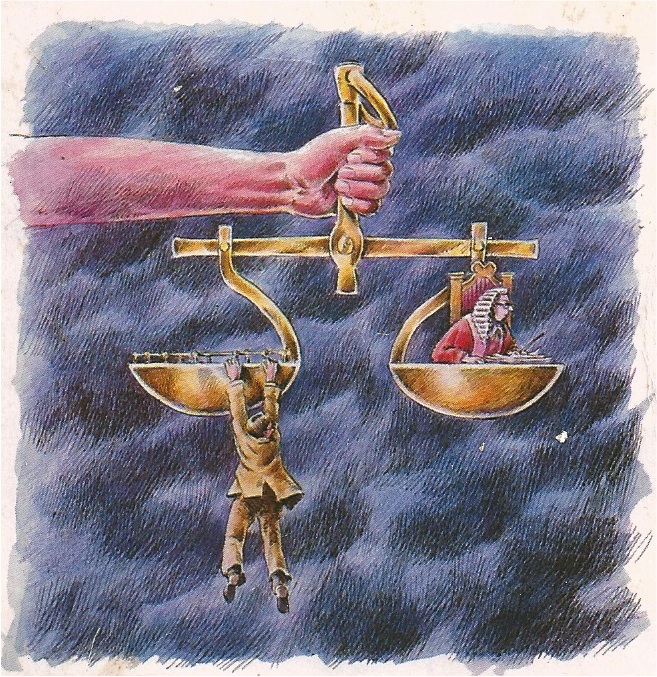
Image from ‘More Rough Justice’ by Peter Hill, Martin Young and Tom Sargant, 1985
Just what is the Criminal Cases Review Commission for? JON ROBINS asked.
The article followed concerns over the performance of the watchdog since it referred just a dozen cases to the Court of Appeal in 2017, only 19 cases in 2018 and just 13 last year.
‘For all its problems, the cash-strapped and oversubscribed Birmingham-based miscarriage of justice watchdog seems blessed with a simplicity of purpose: to send wrongful convictions back to the Court of Appeal. At least, that’s what we thought.
At the start of the year, the CCRC’s new chair Helen Pitcher had said that the number of cases it referred for appeal ‘while clearly very important’ should ‘not be the be-all-and-end-all’.’
MAY
Jill Dando: how pressure to find a killer made the criminal justice system reckless

Jill Dando: It was 20 years since one of the BBC’s most popular journalists was murdered
Twenty years ago, Jill Dando was one of the BBC’s most popular television presenters. NATALIE SMITH recalled the tragic death of a respected journalist and and the wrongful conviction of Barry George.
JUNE
Proof magazine: Another week, another shocking report

We rely on the inspections regime to know what goes on our prisons. They provide both a window and a mirror, argued PROF NICK HARDWICK: ‘a window to see the conditions that exist and a mirror to expose the conditions we tolerate’.
This article also appeared in PROOF.
JULY
‘Why are we obsessed with locking people up?’
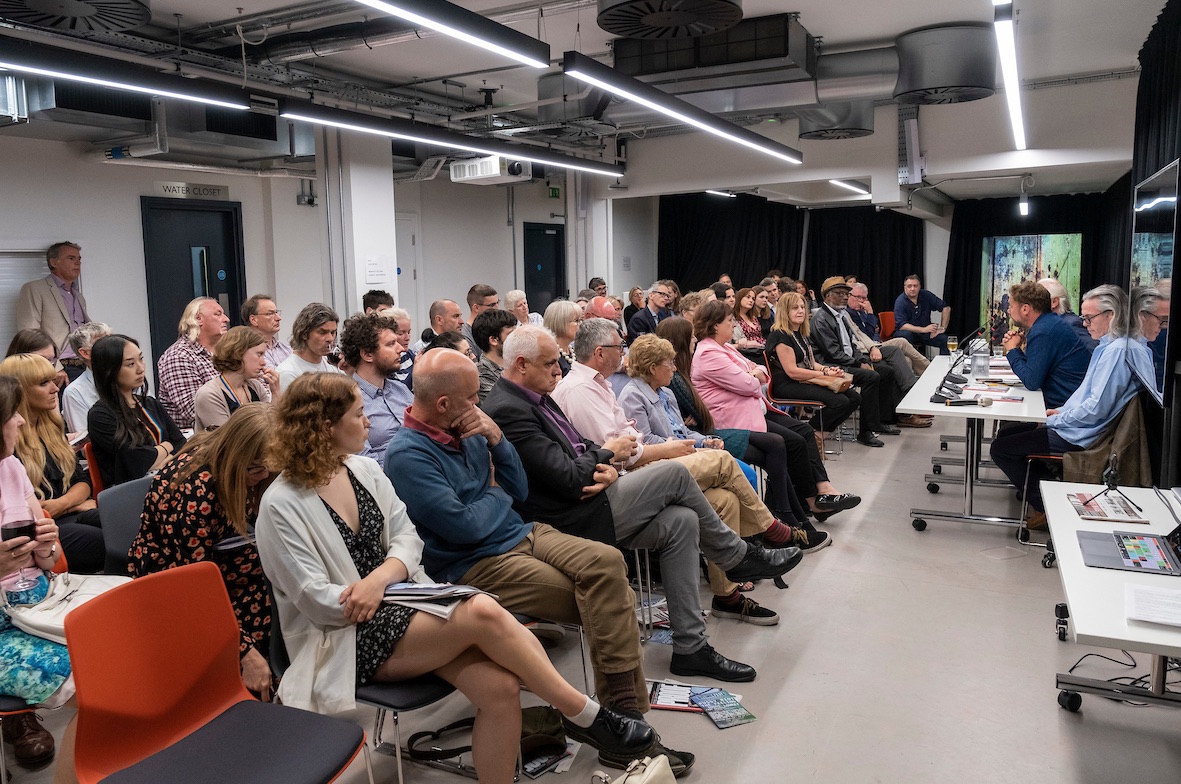 NICHOLAS REED LANGEN reported on the launch of PROOF magazine at the National Union of Journalists with the Byline Times News Club.
NICHOLAS REED LANGEN reported on the launch of PROOF magazine at the National Union of Journalists with the Byline Times News Club.
Speakers included ex prison governor John Podmore, Frances Crook of the Howard League, former prisons inspector Nick Hardwick and (in a separate panel discussion) the artist Patrick Maguire and veteran crime correspondent Duncan Campbell.
‘My life went from colour to black and white’

Interrogation: Patrick Maguire from Proof issue 4
‘When we got arrested the colour went out of my life, quite literally,’ Patrick Maguire told JON ROBINS in an article for PROOF magazine. ‘For about 18 months, the police three times a week would beat the shit out of me.’
This is an edited version of an article that appears in issue 4 of Proof magazine.
The now 57-year-old artist was wrongfully imprisoned at the age of just 14. He spoke about how his traumatic past informed his life as an artist.
Freedom and a tent: the sorry cycle of prison and homelessness
‘“This is the best I can do.” These were the words of my probation officer as she produced a tent and a sleeping bag at the end of my fourth prison sentence.’
So began ‘SHAUN’, a Longford scholar andan ex-prisoner who is studying for a university.
‘Ministers bullied justice watchdog’, say lawyers
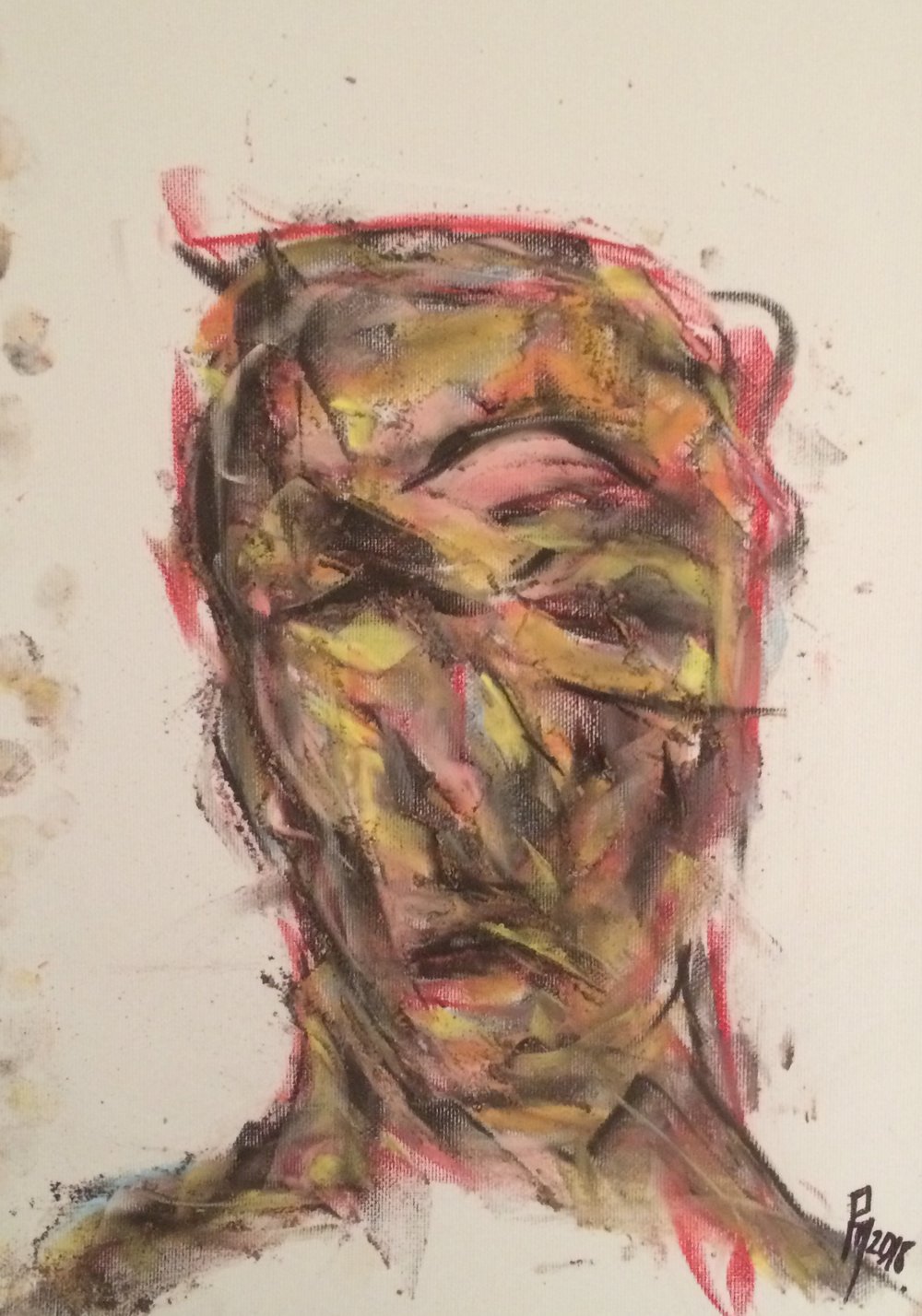
Self Portrait: Patrick Maguire
Whitehall mandarins unlawfully interfered with the independent miscarriages of justice watchdog and threatened its directors with ‘removal’, JON ROBINS reported.
Ten years ago nearly all the Criminal Cases Review Commission’s 11 commissioners were on full-time contracts with salaries and pension schemes. The Justice Gap revealed that now all but one are employed on a minimum one-day-a-week contracts and paid on a £358 daily rate.
We had sight of minutes of one of meetings between civil servants and the commissioners in February 2018 when the MoJ’s deputy director, Alison Wedge, appeared to insist that the watchdog accepted changes to terms of employment for staff and to the structure of its board.
Wedge warned the commission, set up by statute in the wake of the Guildford Four and Birmingham Six debacles, that it would be ‘in conflict’ with government policy if it did not accept fundamental changes laid out in a ministerial review.
The minutes showed that Wedge told the commission that David Gauke, secretary of state for justice ‘recommends the appointment of commissioners to HMQ [the Queen] and that similarly he could recommend removal. However, [she] hoped that there would be no need for such a situation to arise’.
Glyn Maddocks, a lawyer and special adviser to the all-party parliamentary group on miscarriages of justice, said that it was ‘entirely inappropriate for the MoJ to be bullying the CCRC’ in the way that the revelations suggest.
An edited version of this article co-written with Jonathan Ames appeared prominently in The Times (page 2).
AUGUST
On holiday!
SEPTEMBER
Guilty Until Proven Innocent: the crisis in our justice system
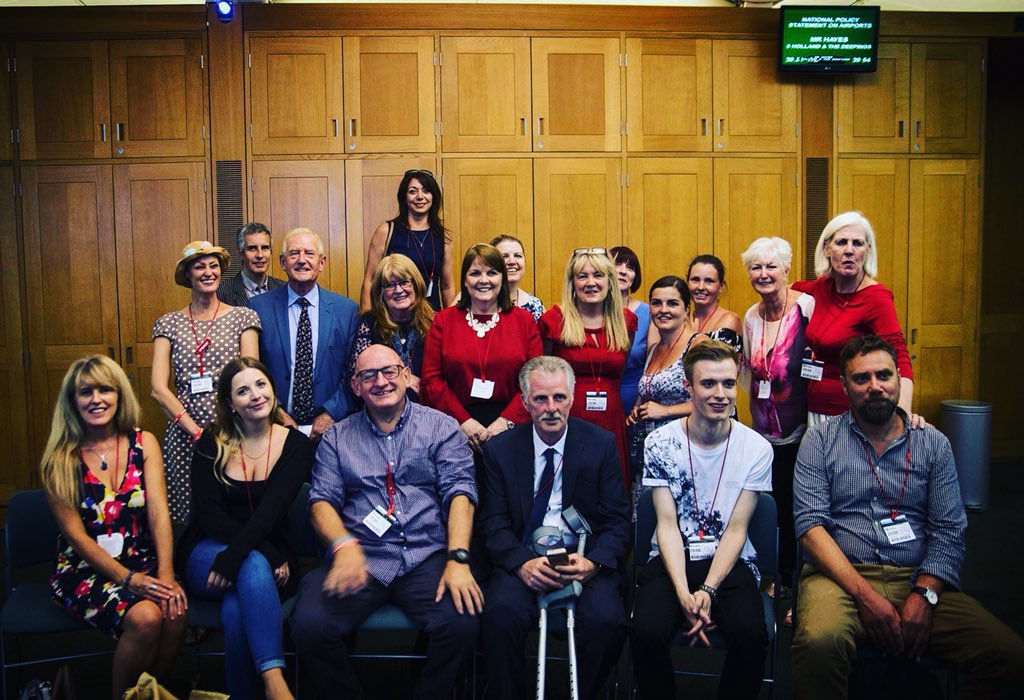
From the Guilty Until Proven Innocent book launch at Westminster on May, 2018
We ran the introduction of Guilty Until Proven Innocent: the crisis in our justice system (Biteback 2018) by JON ROBINS.
‘When a miscarriage of justice case hits the headlines, it is easy to dismiss it as a shocking one-off aberration – a minor hiccup in a system that otherwise functions in an exemplary fashion,’ the book begins. ‘After all, we are told by politicians and lawyers that our criminal justice system is the best in the world. In reality, our justice system is in a state of permanent crisis… .’
The politics of miscarriages of justice
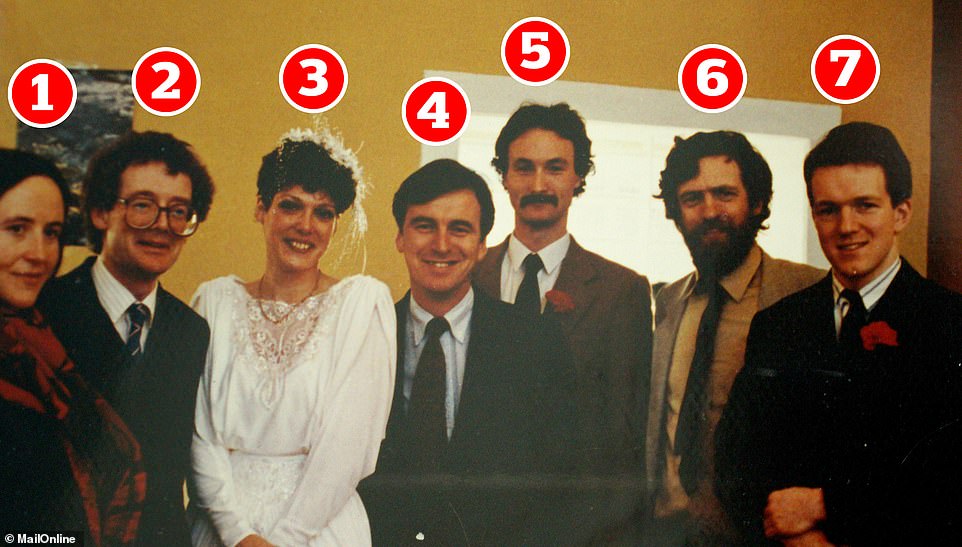
From the Daily Mail article (Sep 9, 2019): ‘Never-before-seen photos show Jeremy Corbyn (6) and John McDonnell (4) at wedding of Guildford Four’s Paul Hill inside Long Lartin’
‘Since the turn of the millennium, why have politicians lost interest in miscarriages of justice?’ asked PAUL MAY, who led campaigns to overturn the wrongful convictions of the Birmingham Six, East Ham Two, Bridgewater Four and Sam Hallam.
The picture came from a Daily Mail article which began: ‘Smiling for the camera beside the bride and groom, these photos show Jeremy Corbyn and John McDonnell at the prison wedding of a Guildford Four member, a convicted IRA bomber at the time.’
OCTOBER
Has the CPS changed its policy on rape?

Lucy: HM YOI Cookham Wood. Koestler Awards under 25s – from Proof 4
The End Violence Against Women Coalition, represented by Centre for Women’s Justice, launched a legal challenge of the Crown Prosecution Service’s charging policy in cases of rape and serious sexual offences. HARRIET BLAND reported.
NOVEMBER
When Black power took on the British establishment

Black Power demonstration, Notting Hill 1970. National Archives
NICHOLAS REED LANGEN recalled the case of the Mangrove Nine ‘where the power of the British state went up against black power and lost’ – and remembered the pioneering work of the late Ian MacDonald QC
‘The trial of the Mangrove Nine was a historical event. The first time the British establishment, sitting incarnate as a robed judge in the Old Bailey, recognised that there was institutionalised racism at the heart of the British state. Alongside this, it played its part in the rise of the radical barrister, Ian Macdonald QC.’
Nicholas Reed Langen
‘Populism is the order of the day’
 Elections should be battles of ideas, where political ideologies are brought into the public arena to face the judgement of the people. If 2019 election battle is supposed to be about ideas in the plural, it is falling some way short,’ wrote NICHOLAS REED LANGEN.
Elections should be battles of ideas, where political ideologies are brought into the public arena to face the judgement of the people. If 2019 election battle is supposed to be about ideas in the plural, it is falling some way short,’ wrote NICHOLAS REED LANGEN.
‘Priti Patel being appointed as Home Secretary will drag home affairs back to the dark ages, making May look like a sopping wet liberal. Johnson has already drafted the police into the backdrop for his speeches, a helpful image for election propaganda…’
Nicholas Reed Langen
DECEMBER
‘Oval Four’ convictions quashed almost 50 years they were jailed
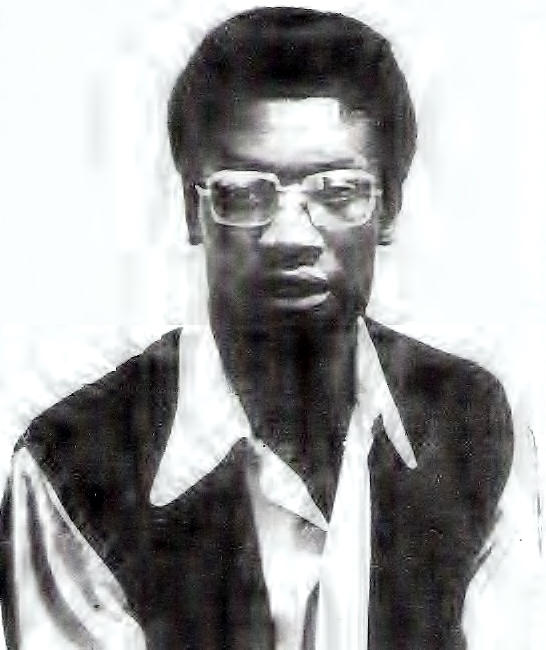
Three men from South London jailed for stealing handbags on the London Underground and assaulting the police cleared their names after almost half a century after they were convicted. JON ROBINS spoke to Winson Trew.
Winston recalled how the four men had been beaten up at the police station and forced to sign confessions. ‘I refused to sign anything and they came back with a statement from one of the others saying I was trying to pick pockets,’ he recalled. ‘I said he didn’t do this voluntarily. “You beat him up to make him sign it”.’ The four men were convicted on 10 to 2 majority.
‘Two of the jury didn’t believe what they said. But the truth is no match for consistent lies. It was four of us against 11 of them. Since 1973 till now I’ve been fighting to have my name cleared.’
